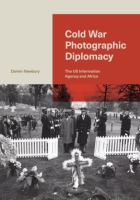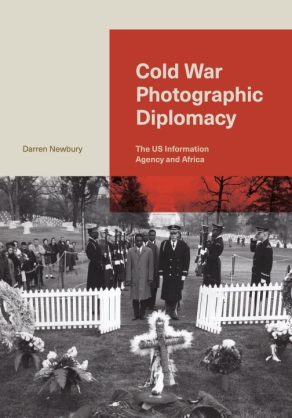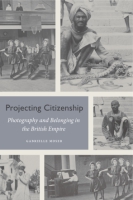Cold War Photographic Diplomacy
The US Information Agency and Africa
Darren Newbury
“Newbury deftly analyzes a wide range of materials, bringing together rich details from USIA archival correspondence related to early postcolonial Africa with anthropology and art criticism. The wealth of photographs is a feast for the eyes. . . . This book is a unique exploration of visual cultures in Africa after colonialism.”
- Description
- Reviews
- Bio
- Table of Contents
- Sample Chapters
- Subjects
Drawing on extensive research in the archives of the United States Information Agency (USIA) and concentrating on the period from the mid-1950s through to the late 1960s, Darren Newbury traces the role of photography in the United States’ appeal to Africa. Newbury shows how photographing the political, cultural, and educational visits of Africans to the United States provided a space for the imagination of international cooperation and friendship; how the United States presented the civil rights struggle as an example of democracy in action; and how it pictured a world of integration and racial coexistence. Cold War Photographic Diplomacy chronicles this careful scripting of images and picture stories and details the cultural and pedagogical work that photography was expected to perform as it was inserted into the visual culture of African cities through magazines, posters, pamphlets, and window displays.
Locating photography at the intersection of African decolonization, racial conflict in the United States, and the cultural Cold War, this study will especially appeal to students and scholars of the history of photography, American studies, and Africana studies.
“Newbury deftly analyzes a wide range of materials, bringing together rich details from USIA archival correspondence related to early postcolonial Africa with anthropology and art criticism. The wealth of photographs is a feast for the eyes. . . . This book is a unique exploration of visual cultures in Africa after colonialism.”
“Fascinating . . . this book reveals the dynamic conception of photography in the Cold War, postcolonial period.”
“Cold War Photographic Diplomacy stands as a significant contribution to the fields of visual diplomacy, Cold War history in Africa, and the political utilization of imagery in postcolonial contexts. Its rigorous analytical framework, empirical foundation, and interdisciplinary perspective establish it as an indispensable resource for scholars investigating the connections between geopolitics and visual representation in the twentieth century.”
“Cold War Photographic Diplomacy’s major achievement is the way that it theorizes a large archive by showing the transatlantic interactions between the image makers, the imagery, and the audiences of the images. It is a fascinating read.”
“A fascinating and unexpected book. . . . An idiosyncratic and often highly problematic archive becomes, in Newbury’s deft hands, a matrix generating rich and sometimes startlingly timely questions.”
Darren Newbury is Professor of Photographic History at the University of Brighton. He is the author of Defiant Images: Photography and Apartheid South Africa and People Apart: 1950s Cape Town Revisited.
Contents
List of Illustrations
Preface
Acknowledgments
List of Abbreviations
1. Photography, Race, and the Cold War Imagination
2. Photography, Public Diplomacy, and the Africa Program at the United States Information Agency
3. “Toward a Better World”: Africa, the United Nations, and the Photographic Diplomacy of Decolonization
4. “A Pleasant Mixture of Negro and White”: Photographing Civil Rights as Democracy in Action
5. “Africans at the Wax Museum”: Photography and International Friendship
6. “Don’t Touch Those Windows”: United States Information Service Exhibits in Africa
Epilogue
Appendix: Archival Series Abbreviations
Notes
Bibliography
Index
Download a PDF sample chapter here: Preface
Also of Interest
Mailing List
Subscribe to our mailing list and be notified about new titles, journals and catalogs.







